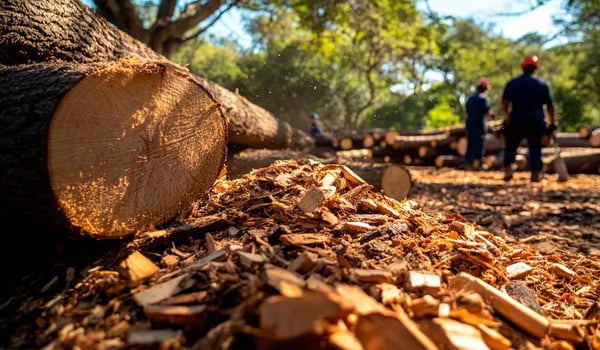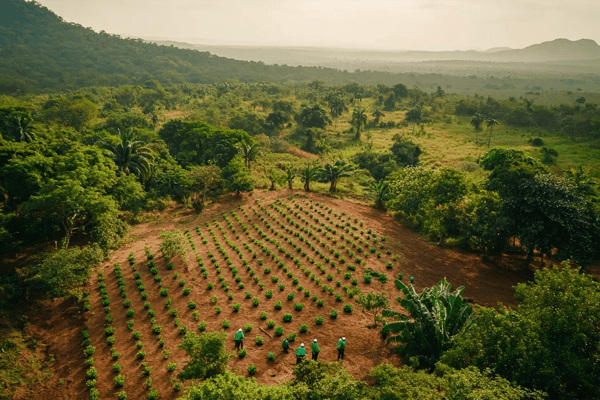Kenya is stepping up its efforts to reduce emissions, unveiling a new national roadmap that will...
10 African countries urge SBTi to Include Carbon Offsets in Corporate Climate Strategies
The West African Alliance on Carbon Markets and Climate Finance (WAACMCF), a coalition of NGOs and carbon market actors, has publicly urged the Science Based Targets initiative (SBTi) to permit carbon offsets in corporate climate strategies. This call to action underscores the vital role of offsets in attracting financing for climate and conservation efforts in the region.
The Importance of Carbon Offsets for Africa
In a statement released on Wednesday, the WAACMCF emphasized the detrimental impact of opposition to carbon markets on Global South communities. "Opponents of carbon markets must realize that their actions are hurting us in the Global South," the statement read. This letter was signed by representatives from Burkina Faso, Cabo Verde, Cote d'Ivoire, Gambia, Guinea-Bissau, Guinea, Liberia, Mali, Senegal, and Togo.
These countries argue that carbon offsets are essential for generating the necessary funds to combat climate change and support sustainable development. Without these financial tools, efforts to transition to clean energy and conserve vital ecosystems may be severely hampered.
Controversy Surrounding SBTi’s Stance on Offsets
The SBTi has recently been at the center of a heated debate after its Board of Trustees hinted at allowing companies to use carbon credits to address their scope 3 emissions, which include indirect value chain emissions. While this move was welcomed by voluntary carbon market participants, it sparked backlash from some SBTi staff and environmentalists, who argued that it might undermine efforts to reduce absolute greenhouse gas (GHG) emissions.
H&M, a major player in the fashion industry, expressed concern over this potential shift. Leyla Ertur, H&M's head of sustainability, emphasized that corporate climate strategies should prioritize reducing GHG emissions within their value chains before considering offsets.
Regional and Global Responses
At the COP28 summit, the Economic Community of West African States (ECOWAS) announced a joint initiative to standardize carbon certification and trading practices in the region. This move aligns with WAACMCF’s long-standing push for such measures and highlights the importance of offsets in regional climate strategies.
ECOWAS, a key economic bloc in Africa, adopted a regional climate strategy in 2022 to address the escalating impacts of climate change. The organization's efforts are critical in promoting economic cooperation and sustainable development among its member states.
The Role of Carbon Offsets in Climate Finance
Carbon offsets play a crucial role in financing climate action, particularly in developing countries. By investing in projects that reduce or prevent carbon emissions, companies can generate credits that are traded on the voluntary carbon market. This system not only helps companies meet their climate targets but also provides much-needed funds for climate mitigation and adaptation projects in the Global South.
The United States recently added momentum to this market by unveiling guidelines for voluntary carbon credits, further validating the role of offsets in global climate finance.
Moving Forward: The Need for Clarity and Action
The WAACMCF's call for the inclusion of carbon offsets in SBTi's net-zero guidance comes at a critical juncture. With climate financing still far below required levels, the revenue generated from offsets is crucial for supporting vulnerable communities, promoting conservation, and transitioning to clean energy.
Ousmane Fall Sarr, coordinator of WAACMCF, highlighted the urgency of clear guidance on offsets to unlock corporate finance for climate action. The lack of clarity not only impacts corporate confidence but also hinders national efforts to update climate plans ahead of major UN climate summits.
As the debate over the efficacy and ethics of carbon offsets continues, it is essential to recognize their potential in driving significant climate finance. By including offsets in corporate climate strategies, the SBTi can help ensure that developing countries have the resources they need to combat climate change effectively.
For more insights on carbon offsets and their role in climate finance, visit Science Based Targets initiative and West African Alliance on Carbon Markets.






